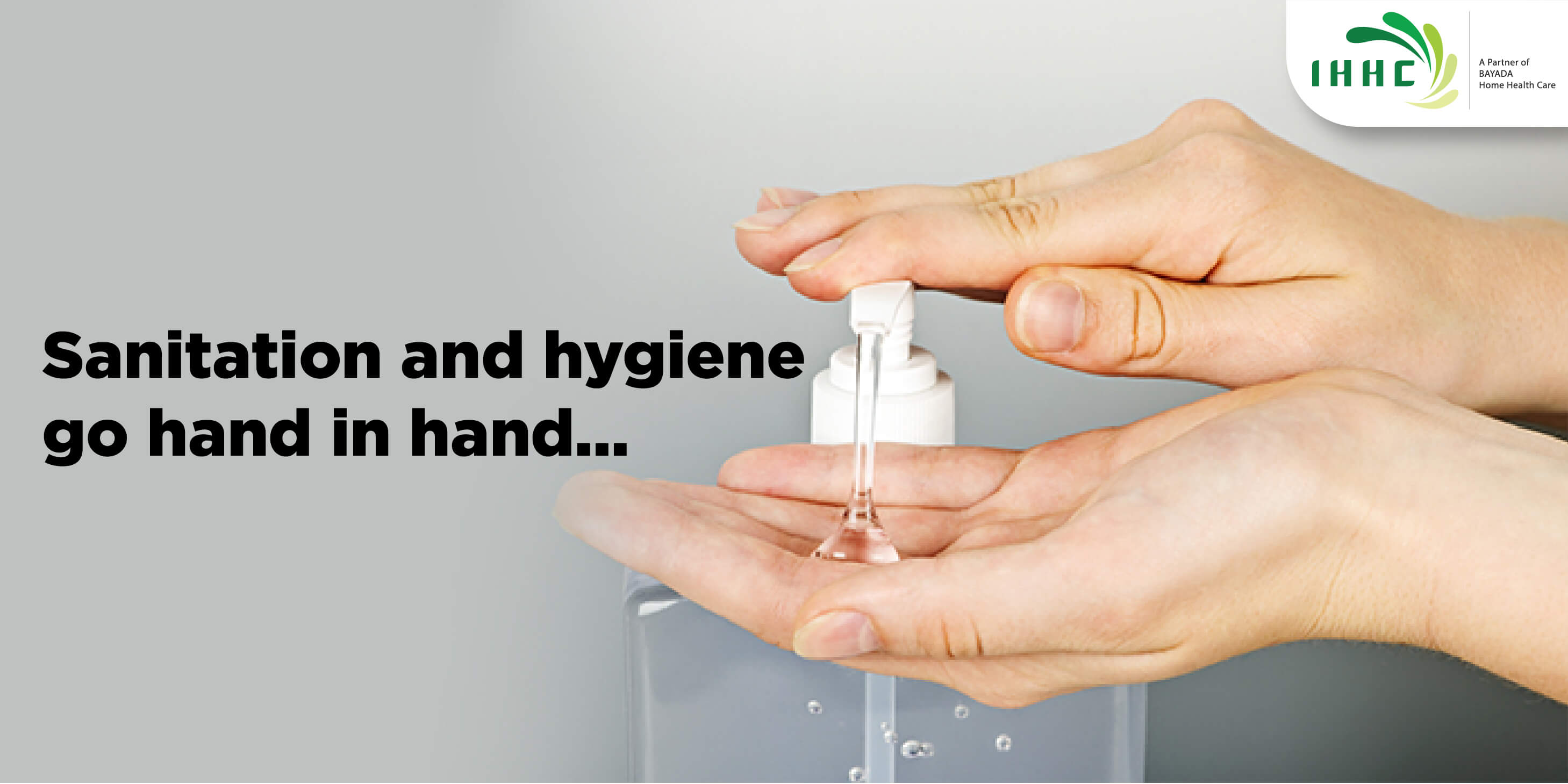Is there a need for home healthcare in India?
But the hands need to be clean and germ free!
The medical profession, and it’s associated allies and services, can extoll at length on the importance of clean surroundings and practicing good hygiene at all levels – personal, professional and communal. We can talk at length on what to do, how it needs to be done and why. But, in this post, we will take a different approach. We shall quote directly, from published reports, the hazards and the fall-out from sanitation and hygiene not being followed by individuals and the public at large – and the consequences thereof.
How does poor sanitation lead to health problems?
According to the World Health Organization (WHO): “The absence of adequate sanitation has a serious impact on health and social development, especially for children. ... This contamination is a major cause of diarrhoea, the second biggest killer of children in developing countries, and leads to other major diseases such as cholera, schistosomiasis, and trachoma.”
What’s more, as per WHO Director-General Dr Margaret Chan (2008), "Sanitation is a cornerstone of public health…Improved sanitation contributes enormously to human health and well-being, especially for girls and women. We know that simple, achievable interventions can reduce the risk of contracting diarrhoeal disease by a third."
In 2008, WHO and UNICEF both estimated that:
- 1.2 billion people worldwide gained access to improved sanitation between 1990 and 2004
- 2.6 billion people in the world lacked adequate sanitation—the safe disposal of human excreta. According to them, “lack of sanitation contributes to about 10% of the global disease burden, causing mainly diarrhoeal diseases.”
A very critical situation. Because, as we all know, using proper toilets and washing hands – always with soap – “prevents the transfer of bacteria, viruses and parasites found in human excreta which otherwise contaminate water resources, soil and food. This contamination is a major cause of diarrhoea, the second biggest killer of children in developing countries, and leads to other major diseases such as cholera, schistosomiasis, and trachoma,” say the experts.
The over-whelming importance of sanitation
Adequate sanitation, together with good hygiene and safe water, are fundamental to good health and to social and economic development. That is why, in 2008, Mr Manmohan Singh, Prime Minister of India, quoted Mahatma Gandhi who said in 1923, “sanitation is more important than independence”
Improving access to sanitation is a crucial step towards reducing the impact of various diseases. Sanitation and good hygiene also:
- Help to create physical environments that enhance safety, dignity and self-esteem
- Safety issues are especially critical for women and children, since they would otherwise risk sexual harassment and assault when defecating at night and in secluded areas
- Improving sanitation and building awareness of good hygiene in schools, benefits both the education system and the health of children. Schools that offer separate toilets for boys and girls, as well as clean facilities for hand washing with soap, are better able to attract and retain students, especially girls
- Improved sanitation significantly impacts not only health, but social and economic development, particularly in developing countries
Other economic benefits of proper sanitation
These include:
- Lower healthcare costs
- Fewer days lost at work or at school through illness or caring for ill relatives
- Time saved by not having to queue at shared sanitation facilities or finding space for open defecation
In fact, preventing sanitation and water-related diseases could save billions per year in healthcare costs. Plus, in much of the developing world at any one time, around half the hospital beds are occupied by people with diarrhoeal diseases caused by unsanitary conditions.
Key facts as per the WHO
- 2.0 billion people still do not have basic sanitation facilities such as toilets or latrines
- Of these, 673 million still defecate in the open, for example in street gutters, behind bushes or into open bodies of water
- At least 10% of the world’s population is thought to consume food irrigated by wastewater
- Poor sanitation is linked to transmission of diseases such as cholera, diarrhoea, dysentery, hepatitis A, typhoid and polio and exacerbates stunting.
- Inadequate sanitation is estimated to cause 432 000 diarrhoeal deaths annually and is a major factor in several neglected tropical diseases, including intestinal worms, schistosomiasis, and trachoma
- Poor sanitation also contributes to malnutrition
Sanitation and health are interconnected
- Diarrhoea remains a major killer but better water, sanitation, and hygiene could prevent the deaths of 297 000 children, aged under five years, annually
- Open defecation continues a vicious cycle of disease and poverty. The countries where open defection is most widespread have:
- The highest number of deaths of children aged under five years of age
- The highest levels of malnutrition and poverty
- The biggest disparities of wealth
Benefits of improving and practicing good sanitation
A WHO study in 2012 calculated that, “for every US$ 1.00 invested in sanitation, there was a return of US$ 5.50 in lower health costs, more productivity, and fewer premature deaths.”
Essentially, the benefits of improved sanitation include:
- Reducing the spread of intestinal worms, schistosomiasis and trachoma that cause suffering for millions
- Reducing the impact of malnutrition
- Promoting dignity and boosting safety, particularly among women and girls;
- Promoting girls’ school attendance by providing separate sanitary facilities
Do we really need more reasons for practicing good hygiene and following clean, sanitary habits?




